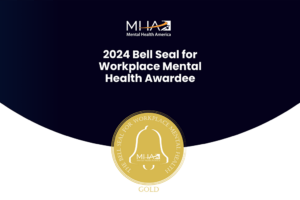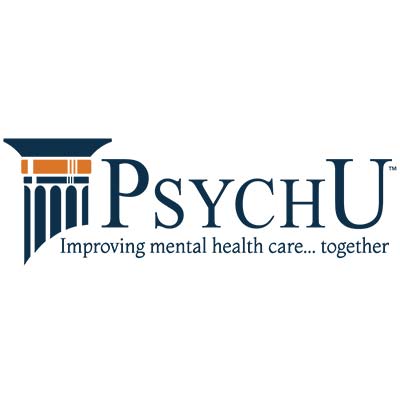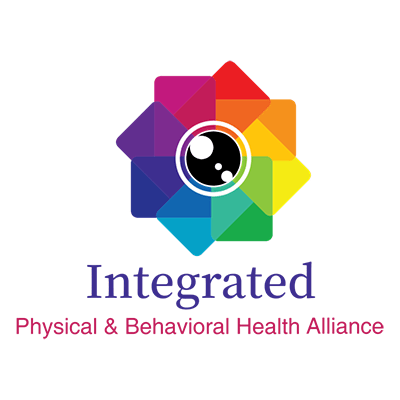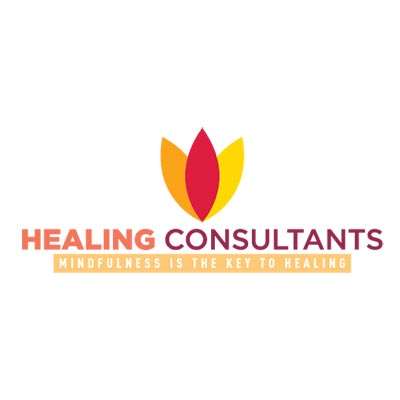Statement from CEO, Dr. Cara English, DBH on the Supreme Court decision to overturn Roe V. Wade
July 5, 2022
By. Dr. Cara English, DBH, CEO of Cummings Graduate Institute for Behavioral Health Studies
In the United States, women* face the highest maternal mortality rate of any high resource country—and the US is the only country outside of Afghanistan and Sudan where the rate is rising. This means that in the US, women have the highest rate of death among all other high-income countries. Black women are nationally 3 times more likely to die from pregnancy and childbirth related complications than are white women, and in some states, that statistic is as high as 7 times higher. US women have the highest rates of chronic conditions and mental health needs, yet are also significantly more likely to have difficulty affording medical care or to skip or delay care due to the costs. Healthcare costs of mothers identified with postpartum depression have been shown to have significantly higher annual medical and pharmaceutical spending than their peers without postpartum depression (Epperson et al., 2020). The United States has the poorest quality care at the highest expense, while putting US citizens lives at risk to reproduce.
Speaking of women’s mental health needs, suicide remains the leading cause of direct maternal death in the first year postpartum (Maternal Mental Health Alliance, 2021). In 2022, the Commonwealth Fund released data indicating that maternal health disparities in the US are the worst in the developed world. In fact, standard training from Postpartum Support International include the long-term overall risk of suicide in pregnant or postpartum women statistic: suicide risk for pregnant women is 17 times that of the general female population and is 70 times higher in the first year after a woman gives birth (PSI, 2022).
Why women’s health disparities are not the primary focus of legislative action is beyond my comprehension. I recognize a terrifying pattern of removing women’s rights to bodily autonomy while our healthcare system and social care systems do not adequately keep women alive or support women in caring for the children we have. For women with intersectionalities such as BIPOC & LGBTQ individuals, those with cognitive and physical disabilities, chronic diseases, and more, I can only wonder how much more we can stand to lose.
In 2017, the UN Working Group on Human Rights published a statement concerning the concept of women’s equal personhood, including the right of a woman or girl to make autonomous decisions about her own body and reproductive functions. “Equality in reproductive health includes access, without discrimination, to affordable, quality contraception, including emergency contraception.” The working group went on to state, “The decision as to whether to continue a pregnancy or terminate it, is fundamentally and primarily the woman’s decision, as it may shape her whole future personal life as well as family life and has a crucial impact on women’s enjoyment of other human rights.”
Before Roe vs. Wade, every large hospital in America had an abortion sepsis ward, and most doctors and nurses had cared for one or many more women whose lives were threatened due to pursuing illegal abortions. As always, BIPOC women and women living in impoverished and rural areas were disproportionately affected. As a healthcare community, it is critical to know the realities of what we are now facing again, thanks to this SCOTUS decision.
You may be aware of the 2019 Ohio bill ordering doctors to reimplant ectopic pregnancies, a scientifically impossible action. While this bill failed, the important issue for us as a medical community is that the bill was proposed and was even considered. Medical professionals and healthcare organizations must stand against pseudoscience; particularly from lawmakers with no medical training
In Missouri, due to the state’s total abortion ban and vague language, women with ectopic pregnancies are experiencing delayed care as physicians are unsure what they are legally allowed to do in potentially deadly pregnancy complications. Violating the current Missouri abortion ban law can be found guilty of a class B felony and can face 5 – 15 years in prison as well as suspention or revoctaion of their medical license. Women and their physicians are being put in impossible situations. Physicians in states with total abortion bans must now delay care for women in life threatening conditions as they wait for hospital attorneys to give them permission to proceed.
Remaining silent about this issue puts lives in danger and places us in direct violation of the universal healthcare ethical principle of nonmaleficence.
Doctors of Behavioral Health have the ability to see the 80,000 foot view, identify the moving parts, and see the connections as no other human can. We have a responsibility to advocate for the healthcare and human rights of ALL community members. The SCOTUS decision is a direct attack on birthing individuals, and it also threatens equality for LGBTQ+ rights and more, as Justice Thomas called explicitly for SCOTUS to “reconsider all of the Court’s substantive due process precedents,” including landmark cases that protect same sex marriage, same sex acts, and contraception.
Cummings Graduate Institute for Behavioral Health Studies (CGI) will continue to support total body autonomy and equal protection for making healthcare decisions under the law for all human beings. We stand against the influence of non-medical pseudoscience in state and federal law, particularly as it interferes with our ability to care for our patients in acute health crises as well as in daily health decisions patients need to make to exercise health agency over their lives. We urge the medical community to stand with patients against patient-physician interference.
*CGI understands and respects that not every person with the capacity for pregnancy identifies as a woman. We embrace and respect each individual’s gender identity, expression, and experience, and desire to be inclusive. While we do make an effort to use gender-inclusive language in our communications and curricula, we do also use woman/women in this statement in order to acknowledge the long history of gender discrimination targeting women, the specialization of “women’s health care” that Doctors of Behavioral Health care for others in, and the need to remain consistent with published literature.
Resources and Support
Attributed to the American Psychological Association
The facts about abortion and mental health: https://www.apa.org/monitor/2022/09/news-facts-abortion-mental-health
While abortion isn’t linked to mental health problems, the challenges around obtaining one can be distressing. The following programs and organizations aid people who are seeking an abortion or want to talk about their experience.
Finding a credible health care provider
- Planned Parenthood partners with more than 600 sexual and reproductive health care centers nationwide.
- AbortionFinder.org offers a directory of verified abortion providers across the United States
- The National Abortion Federation offers an online “Find a Provider” tool and a Referral Line to help patients locate abortion providers in their region.
- Avoid “crisis pregnancy centers,” which promote misinformation intended to dissuade people from obtaining abortions. One study found that 80% of crisis pregnancy center websites contained false or misleading information (Bryan, A. G., et al., Contraception, Vol. 90, No. 6, 2014).
Social and emotional support
- Exhale is a telephone hotline that offers informal counseling for people who have had abortions and their loved ones.
- Planned Parenthood’s local, state, and regional centers offer various programming and activities for patients.
- Sister Song, the National Black Women’s Reproductive Justice Agenda, and other organizations focus on supporting people of color.
Financial support
- The National Network of Abortion Funds works with more than 80 organizations to provide funding for abortion, transportation, childcare, and other services.
- The National Abortion Federation provides referrals, case management, and financial assistance for people seeking abortions.
- Funding is also available from numerous regional, state, and local grassroots organizations, such as Jane’s Due Process, the Texas Equal Access Fund, and the Mississippi Reproductive Freedom Fund.
Attributed to the National Association of Social Workers
Reproductive Rights Are Human Rights: https://www.socialworkers.org/Advocacy/Policy-Issues/Reproductive-Rights-Are-Human-Rights
Take Action
- Legislative Alert: Urge Your U.S. Senators to Pass the Women’s Health Protection Act (S. 4132)
- The Roe Act and the Path Forward for our Nation: Hyperlocal Organizing Starting Now – Social Work Blog
National
- Reproductive Rights and Voting Rights Take Center Stage Across the Nation – Social Work Advocates, Dec. 2021/Jan. 2022
- Reproductive Decision Making: Acting To Help Clients – NASW Press, 2018
- Webinar: Reproductive Decision Making: Acting To Help Clients
- Provide Quality Healthcare for All – 2021 Blueprint of Federal Social Policy Priorities
- NASW National Committee on Women’s Issues
- Social Work and Public Policy – Social Work Talks podcast
NASW Chapters
- Social Workers’ Role in Abortion Access – NASW Michigan
- Roe v. Wade Overturned: Social Workers for Reproductive Justice – NASW North Carolina
- The Roe Act and the Path Forward for Our Nation: Hyperlocal Organizing Starting Now – NASW Massachusetts Chapter
Social Work Blog Posts
- Reproductive Rights legal cases handled by the NASW Legal Defense Fund
- NASW on amicus brief before U.S. Supreme Court that seeks to overturn Texas abortion law
- Texas abortion law could put social workers in legal jeopardy: Please sign petition
- NASW National Committee on Women’s Issues denounces attacks on reproductive rights
- Overturning Roe v. Wade will disproportionately affect people of color: Here is what social workers should know
Reproductive Rights Organizations and Resources
- Women Have Options
- NARAL Pro-Choice America
- Planned Parenthood
- National Network of Abortion Funds
- Center for Reproductive Rights
- Status of Women in the United States – Institute for Women’s Policy Research
Attributed to National Public Radio
A landmark study tracks the lasting effect of having an abortion — or being denied one, May 15, 2022: https://www.npr.org/sections/health-shots/2022/05/15/1098347992/a-landmark-study-tracks-the-lasting-effect-of-having-an-abortion-or-being-denied





























